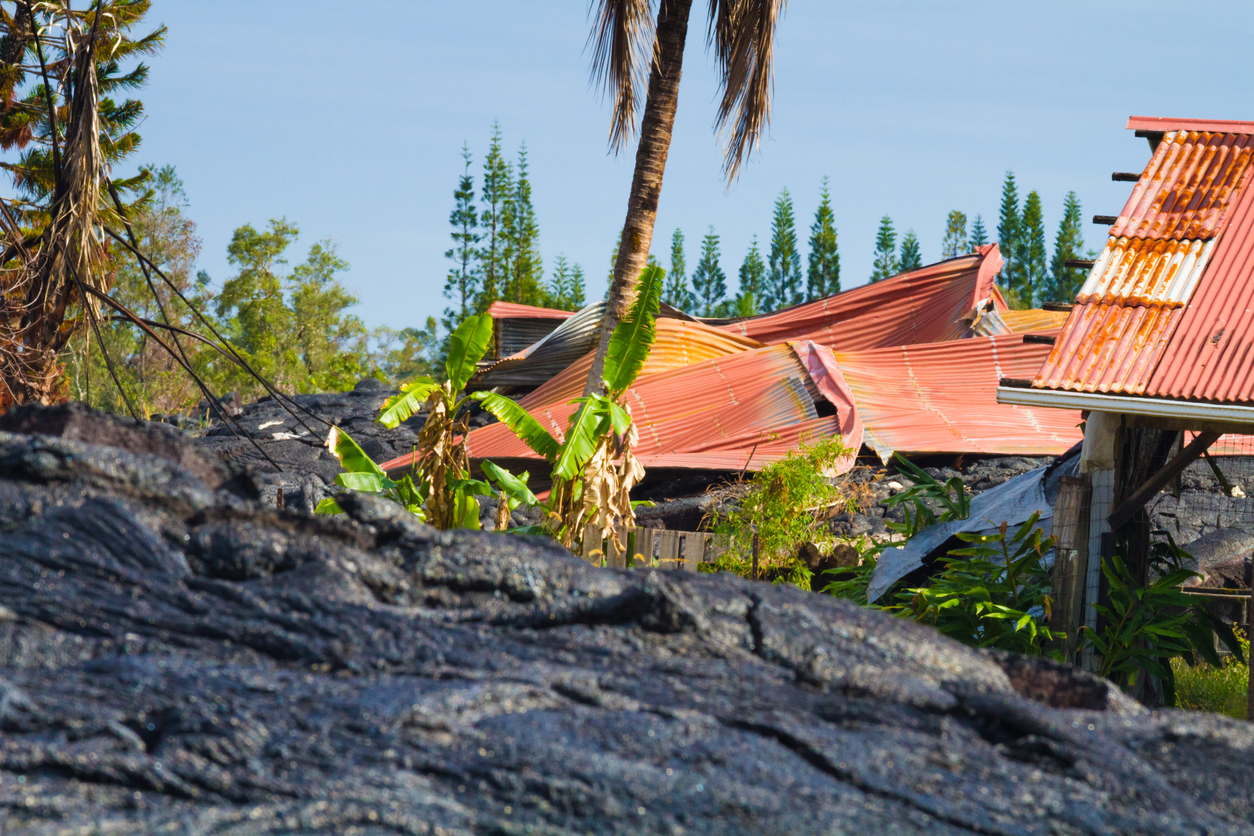The title of this post was a question posed to me yesterday by one of the crew while racing in the Transpac to Hawaii. Thanks to Elon Musk and Starlink, I was able to gain fairly cheap access to the internet and show him the case I am sharing with you.1
The facts of the case provide the answer to the question:
The surplus lines policies sold to Plaintiffs and the Class contained an exclusion that precludes coverage for ‘the peril of lava and/or lava flow causing direct or indirect physical damage or loss of use of the insured property’ (the ‘Lava Exclusion’)… This despite the fact that Plaintiffs allegedly sought homeowner’s insurance that would include lava coverage, given the nature of the location of their homes. Plaintiffs allege that they relied on Defendants’ ‘knowledge, experience, and expertise regarding the appropriateness and availability of coverages in the Hawaii insurance market,’ and that Defendants ‘knew and understood’ that Plaintiffs’ homes were located in high-risk lava zones—making coverage for damages caused by lava flow necessary—yet still sold them policies containing the Lava Exclusion. While Plaintiffs do not claim that they interacted directly with Underwriters or Monarch, the Amended Complaint alleges that Monarch (Underwriters’ agent) used its retail brokers (Moa and Aloha) to coordinate in the procurement of the policies and that Monarch and Underwriters would or should have been aware of the particular need for lava coverage based on the location of Plaintiffs’ properties. Now that Plaintiffs’ homes have allegedly suffered damages resulting from the recent eruption, Plaintiffs claim that Defendants should be held liable for placing Plaintiffs with inappropriate coverage without complying with certain statutory requirements and without advising them of other available insurance that would have included lava coverage.
Plaintiffs allege that Defendants failed to comply with the statutory requirements in Section 301 for placing surplus lines coverage, which require a ‘diligent search’ to determine whether ‘[t]he full amount or kind of insurance’ cannot be obtained from ‘authorized’ insurers. Defendants, according to the Amended Complaint, knew or should have known that Plaintiffs lived in high-risk areas, yet they still failed to advise Plaintiffs that they would have qualified for more comprehensive coverage (including volcanic eruption) through other channels. The Amended Complaint focuses in particular on coverage through the Hawai’i Property Insurance Association (‘HPIA’ or the ‘Association’). The HPIA is a statutorily-created association of authorized insurers who issue coverage for 16 perils, including fire and volcanic eruption. The HPIA was established to make property insurance available to ‘persons who are unable to obtain basic property insurance in the private market from a licensed insurer.’ The legislature when creating the HPIA described the purpose underlying the program:
The legislature finds that the recent Kilauea volcano eruption and lava flows have caused a serious problem for residents of certain areas of the Big Island. The actual and potential losses caused by the volcanic activity has also resulted in the unavailability of basic property insurance for persons having insurable interests in properties in the vicinity which has caused great personal suffering and financial hardship and has contributed to uncertainty in the community. The legislature finds it is in the interest of the State to foster stability for people adversely affected by major natural disasters, and this purpose will be served by making basic property insurance available to such persons.
The purpose of this Act is to create an entity which will provide appropriately priced basic property insurance for owners and occupants of property in high risk areas for major natural disasters. This extraordinary action is being taken to provide limited relief to meet the unique and pressing needs of these persons who are currently unable to obtain any property insurance.
… The legislative history reflects the intent to establish a program that would ensure property coverage for individuals whose homes are at great risk of damages because of their proximity to active volcanoes on the Big Island and the continuous eruption thereof.
According to the Amended Complaint, Plaintiffs’ and the Class’s properties would have qualified for HPIA insurance, but Defendants represented to Plaintiffs that the Underwriters’ policies were the only available property insurance coverage. The Amended Complaint also suggests that Plaintiffs may have qualified for other Lloyd’s policies within the voluntary market that would not have contained a Lava Exclusion. Plaintiffs allege that such policies would only have been available through a different broker—in other words, not Monarch.
Plaintiffs allege that each Defendant violated various duties owed to them when placing Plaintiffs and the Class in surplus lines insurance without advising them of the availability of HPIA insurance or other policies that would have included lava coverage. They claim that Underwriters and Monarch regularly conduct business selling insurance on the Hawai’i islands, and they therefore should have been cognizant of the unique geographical concerns—including the eruption history—as well as of the existence of the state-established HPIA program. Plaintiffs allege that Underwriters are liable for their own conduct and that they are vicariously liable for the conduct of their agent,
Just as insurers try to exclude hurricane and wind damage from areas that have hurricanes, earthquakes from California, and limit roof damage in hail prone states, insurers in Hawaii have attempted to exclude lava damage. But there is lava coverage in Hawaii.
The wind is light and the race is slow. The crew of Merlin seems anxious that the rum rationing with soon start. If you would like to see where I am, just click on this link.
Thought For The Day
Unlike most major American cities, Honolulu is geographically insulated from the rest of the country. When disaster strikes we cannot call on neighboring states for assistance.
—Daniel Akaka
1 Aquilina v. Certain Underwriters a Lloyd’s, 465 F. Supp. 3d 1088 (D. Haw. 2020).



